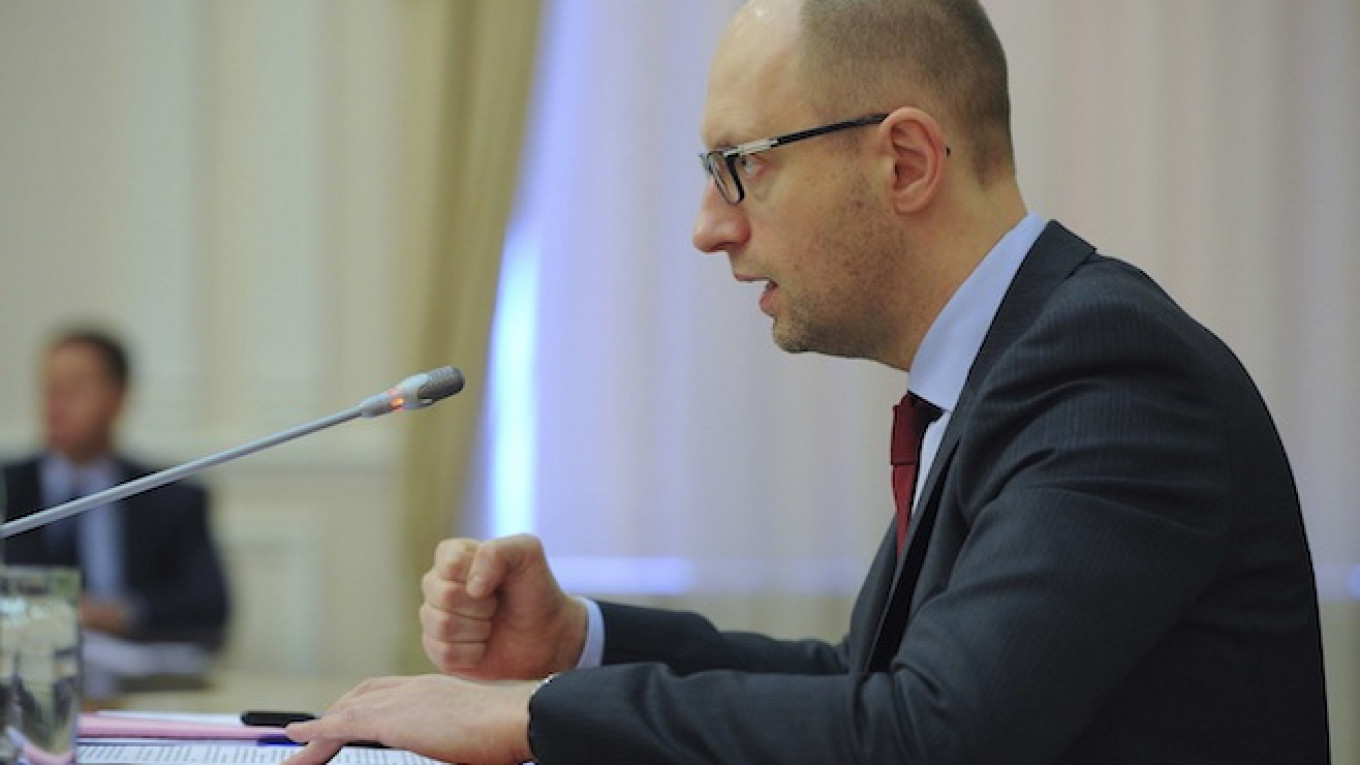KIEV — The Ukrainian government will approve a ban on the import of some Russian goods later on Wednesday, said Prime Minister Arseny Yatsenyuk, a retaliatory move in a growing trade row between the two former allies.
Yatsenyuk, in televised comments at a cabinet meeting, said the government would also adjust duties on Russian imports, but gave no details.
"For every Russian action, Ukraine will take counter actions and counter measures," said Yatsenyuk.
The trade row ignited earlier this month after the Kremlin said it was suspending a free trade zone with Ukraine because of "extraordinary circumstances affecting the interests and economic security" of Russia, a reference to a free trade pact Kiev had agreed with the European Union.
Moscow said the EU-Ukraine pact, which is due to come into force next month, could lead to a flood of European imports into Russia and make its own exports to Ukraine less competitive.
Kiev has said the trade war with Russia could cost it $600 million next year or about 0.6 percent of its trade turnover.
Ukraine's economy ministry said earlier on Wednesday an import ban on dozens of Russian goods from dog food to locomotives could be imposed as soon as Jan. 10.
It published a list of goods it suggested be targeted including meat and meat products, baby food, chocolate, fish, cheese, coffee, beer, tobacco, alcohol, herbicides, and railway hardware including locomotives.
Controversy surrounding the EU-Ukraine trade deal was the initial trigger for unrest in Kiev, which culminated in the ousting of Viktor Yanukovych, the country's Moscow-backed president in 2014. Russia then annexed Crimea and backed a separatist revolt in eastern Ukraine, steps that led to Moscow's worst standoff with the West in decades.
Ukrainian President Petro Poroshenko has said he regrets Russia's decision to end preferential trade with his country, but says he is "ready to pay the price" for the EU trade accord.
A Message from The Moscow Times:
Dear readers,
We are facing unprecedented challenges. Russia's Prosecutor General's Office has designated The Moscow Times as an "undesirable" organization, criminalizing our work and putting our staff at risk of prosecution. This follows our earlier unjust labeling as a "foreign agent."
These actions are direct attempts to silence independent journalism in Russia. The authorities claim our work "discredits the decisions of the Russian leadership." We see things differently: we strive to provide accurate, unbiased reporting on Russia.
We, the journalists of The Moscow Times, refuse to be silenced. But to continue our work, we need your help.
Your support, no matter how small, makes a world of difference. If you can, please support us monthly starting from just $2. It's quick to set up, and every contribution makes a significant impact.
By supporting The Moscow Times, you're defending open, independent journalism in the face of repression. Thank you for standing with us.
Remind me later.


